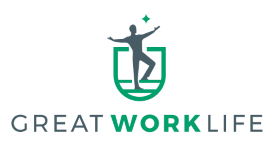Have you ever dreamed of owning your own business and reaping all the profits without the risk and hassle of full-time employees? Welcome to the world of the Solopreneur and Solopreneurship.
What is a Solopreneur?
The term solopreneur combines “solo” (meaning alone) with “entrepreneur.” A Solopreneur is someone who has founded or runs a business that is specifically designed to operate without any permanent employees. Solopreneurs typically outsource work to contractors or freelancers, enabling scalable growth.
The term solopreneur is shorthand for a sole proprietorship or one-person business. Vast numbers of people are choosing the role of solopreneur in today’s world.
People become solopreneurs for many reasons, such as the lack of job security and the growing shortage of decent-paying part-time jobs.
Others prefer flexible hours, the lack of a boss, and the ability to choose assignments. Many solo gigs are more interesting and challenging than typical part-time work.
Freelance writing, for instance, is more fulfilling than running a cash register or waiting tables. The potential to use your education, develop and exercise new skills, and the ability to create work that can impress potential employers can add to the appeal of solopreneurship.
Despite the advantages, many people do not understand how to become solopreneurs. Here are some tips on launching your solopreneur career.

1. Solopreneurs Learn Skills Fast
Most would-be solopreneurs fail because they know little about business and entrepreneurship. A good writer who does not know how to market her work or a consultant who does not understand the legal implications could also fail.
The first step in going solo is to study everything about the market. Read up on marketing, taxes, laws, licensing, the market, regulations, and anything else that could affect or help you grow your business.
Build Knowledge Fast With Blinkist
If you want to supercharge your learning, you could sign up for Blinkist. I have a yearly membership with Blinkist because it allows me to read or listen to an entire book in summary format in 15 minutes. Not only that, but you also have unlimited access to over 3,000 summarized books.

Book summarization services only work well with non-fiction books such as self-improvement, biographies, or concepts. A fiction thriller story cannot be summarized because the whole point is the story, not the idea.
Try Blinkist for free, and you will receive one free daily book summary.

If you have no experience in those areas, consider reading or listening to books or taking courses in subjects such as accounting, marketing, bookkeeping, taxes, and management. Remember, as a solopreneur, you must be your accountant, bookkeeper, marketer, information technology (IT) person, human resources department, advertising agency, and possibly tax expert.
The more tasks you can perform yourself, the more money you can make as a solopreneur. Every dollar you pay to an outside professional is a dollar that comes out of your pocket. When you identify every skill or expertise you could need, you can start learning them.
2. Solopreneurs Hire Great Freelancers
One reason solopreneurs fail is that they try to do everything on their own.
Most solopreneurs face many tasks they cannot do for themselves. Yet, many do not seek help until they get into trouble.
Some tasks you should consider outsourcing include marketing, search engine marketing (SEO), accounting, bookkeeping, taxes, and copy editing. A good way to identify such tasks is to list the work you will need and your skills.
One way to improve your work is to outsource everything but your area of expertise. For instance, a web designer could hire somebody to handle accounting or marketing. Clients generally pay more for an experienced specialist than a generalist.
Hiring professionals who can enhance your work can help you make more money. For instance, a writer could improve her quality by hiring a proofreader or copy editor.
Be careful when hiring outside help because the cost of professional services can quickly increase. Yet knowing what tasks you can handle could increase your income.

"When You Stop Learning, You Stop Living" SkillShare Makes Learning Easy. Skillshare Is Our #1 Rated Learning Platform With Great Lessons On:★★★★★ Creating: Photography, Film-Making, Music, Graphic Design & Coding ★★★★★ Building: Leadership, Communication, Entrepreneurship & Marketing ★★★★★ Thriving: Personal & Professional Development, Productivity, Time Management "Skillshare is like Netflix for learning. I take a course every time I need a new skill. With over 30,000 courses to choose from, I always have something to learn." Barry D. Moore - Founder: GreatWorkLife.com |
3. Solopreneurs are Highly Productive
If you are to establish or run a solo business, you will need to maximize your time. You will be performing many different roles, including CEO, business development, customer research, product development, finance, and even general dogsbody.
You must plan, prioritize, and execute activities that drive you toward your goals.
Read our article 33 Myth-busting Productivity Tips/Hacks That REALLY Work and Top 20 Best Time Management Tips To Transform Your Day.
4. Create a Business Plan
The fastest way to fail at any business, including solopreneurship, is not to have a business plan. Unfortunately, most solopreneurs fail to create a business plan before they begin.
Creating a business plan is easy. All you need to do is write your goals down and what you will need to achieve them.
📖 Book Tip: Solopreneurs Learn Fast
Planning is vital because it forces you to think about goals and your process for achieving them. You will need to consider what skills you have and what resources and equipment you will need.
The business plan does not need to be elaborate but needs to list all your goals and needs. A business plan can be as simple as a list of what you want to achieve or complex.
If you need help writing a business plan, many business plan templates and guides to business-plan writing are available online.
A typical business plan will list your goals and steps to achieve them. A writer, for instance, could create an outline of steps for finding freelance work.
Those steps could include:
- Deciding where to search for work. Which freelance websites to search for jobs?
- How to search for work.
- A plan for searching for work.
- What equipment will you need for writing, laptop, desktop, internet connection, software, etc?
- What professional help could you need? Copy editing, proofreading, etc.
- Extra money and resources.
5. Solopreneurs Build Multiple Revenue Streams
Only a few solopreneurs will make enough money to pay all the bills from the beginning. Most freelancers will need savings to draw upon or another source of income.
Even with large savings, it is smart to have a part-time job or a side hustle to augment your income. You will need extra income because of slow periods and unexpected expenses.
There are many side hustles to consider, including Uber, Lyft, Airbnb, Instacart, Grubhub, online sales through eBay, Amazon, and Etsy, podcasting and other gig economy jobs, freelance work through platforms such as UpWork, rental properties, and jobs in your community. The income from a few hours of Uber driving or a part-time retail job could help pay a few bills or add some cash to your savings.
Many beginner solopreneurs take part-time jobs because they can give you additional social contact. Loneliness can be one of the greatest frustrations of freelance or gig work.
Escaping the boss and office politics can come at a price. You get away from the nagging but also miss socializing around the water cooler.
It would help to consider a side hustle or a part-time job because you will probably need more money than you think. Most people underestimate their spending capacity and overestimate their saving capacity.
6. Build a Cash Reserve
A reality of solopreneurship most people do not grasp until it is too late is being strapped for cash. If you rely on freelance or gig work, you will face slow periods.
There will be times when work is scarce and periods when clients do not pay you. Something to realize is that clients pay you when they want, not when you need the money. Consequently, you can go weeks or longer without getting paid.
Self-employment is not a job where you get a steady paycheck every week, two weeks, or each month. To survive, you will need extra cash in a savings account, CD, or Money Market.
If you are planning to become a solopreneur, start saving immediately. Put as much money as possible in your savings or investment accounts while working. When you earn, income put 10% to 20% of your income in savings.
A good rule of thumb is figuring out what savings you will need and then saving twice as much. You will need all the money you can save; because you will underestimate your spending and expenses and overestimate your saving and budgeting capacity.
A great way to save is to use tools, such as apps that allow you to put money straight into a savings account, investment account, or CD as you make it. Another savings method is to make as much money as possible while you are working.
7. Learn How to Budget
One skill most people think they have but do not know is budgeting. If you plan to be a solopreneur, you must learn how to create and live on a budget.
The best way to start budgeting is to create a simple budget. Write down all your expenses and spending, and add it all up. The final number you arrive at is the amount of money you spend. Then, add 10% to that number because there will be emergency expenditures.
📖 Book Tip: The One-Page Financial Plan: A Simple Way to Be Smart About Your Money
Once you have the list, look for any expenditures you can eliminate; expenditures to cut include gym memberships, magazine and newspaper subscriptions, streaming video expenditures, eating out, and any service or product you do not use regularly.
Try to live frugally and simplify your life. For example, you could cook your own meals or exercise at home instead of going to the gym. You could also try shopping for clothes and other products at thrift stores instead of department stores or Amazon.
Before you go solo, consider eliminating big expenses such as housing costs or your car. If you could live without a car, consider selling your ride and relying on rentals, public transit, or Uber. Dumping your car can cut your budget by several hundred dollars a month by eliminating insurance, maintenance, and gas costs.
Read the One-Page Financial Plan in 15 Minutes with Blinkist
Moving to a cheaper place or getting a roommate could reduce housing costs. Strangely, using a grocery delivery service such as Instacart could cut your food bills because you could only order the food you need. Shopping at stores takes time and costs more because it increases the chance of impulse buying.
8. Learn the Value of Time
Many solopreneurs lose money because they cannot understand the value and importance of their time.
A software designer who charges $100 an hour for services will lose money if she spends five hours a week doing housework. The designer could lose $500 because of the housework.
The designer could hire a house cleaner for $20 an hour. By paying $100 a week for housecleaning, the designer could earn an extra $400.
Other ways to save time include ordering items through Amazon Prime and buying your groceries online. Eliminating your grocery shopping trips could free four or five hours a week for extra paid work.
You need to free up time to work when paid work is available. Most freelancers find periods when there is more work than time, and working extra hours while you can help you save cash for the future.
Making time management part of your business plan is a great way to free up time. Drawing up a simple schedule and trying to stick to it can help you get more work done.
You could schedule most of your work time at the time of day when you are least tired and less likely to be distracted. If you are a morning person, for example, you could schedule most of your work in the morning. If you have kids, you could schedule your work when they are in school.
Make sure you take time off and schedule a time for rest. Have a quiet time daily and schedule times for exercise, reading, study, family, and fun. If you do not learn how to take breaks, you will burn yourself out and do lousy work.
Every solopreneur needs to learn that time is their most important commodity. Treating time as a precious resource will help you make more money and possibly earn a living as a freelancer.
9. Find a Solopreneur Mentor
Many solopreneurs fail because they know little and learn as they go along. In the worst-case scenario, a sole proprietor will try to teach himself or make it up as he goes along.
You can avoid this dilemma by finding a mentor. A mentor is an experienced solopreneur who can show you the ropes and guide you through the process.
Having a good mentor can make the difference between failure and success. The mentor can tell you what not to do and what mistakes to avoid. Additionally, the mentor can help you network, make business contacts, and even direct work your way.
You can find a mentor by contacting freelancers and sole proprietors in your community. Organizations such as the Freelance Union could help you locate potential mentors. Social media, such as Facebook Groups, could help you find other solopreneurs in your area.
One way to find support is to organize a meet-up of solopreneurs in your area. You could gather for coffee or lunch once a week or talk. Sometimes, having somebody to discuss problems with can spell the difference between failure and success.
Once you succeed, consider mentoring others. Helping somebody else can make you a better solopreneur because you will learn more and feel good about yourself. Most importantly, you will not be alone on your journey. Instead, you will have others to help you and guide you.
10. Learn Sales & Marketing
The most important business skill most people lack is the ability to market themselves and their services. Many solopreneurs fail because they do not market their goods or services.
The most basic form of marketing is putting your skills and services in front of others. To that end, solopreneurs need to seek free ways to market their creations.
Writers have many excellent opportunities to market their skills free through platforms such as Medium and Steem. Those platforms can help you earn extra income by using their paywalls. Another good way to market your services is to create a blog and post your writing daily.
Volunteer work is another way for solopreneurs to market themselves. A website designer could create a blog or website for a charity or community organization to showcase her services, for instance.
Reading marketing books and studying marketing websites is a good way to learn marketing basics. Jay Conrad Levinson’s Guerrilla Marketing is still the best basic marketing guide for solopreneurs and small businesses.
📖 Book Tip: The Best of Guerrilla Marketing
The biggest advantage of Guerrilla Marketing is that Levinson wrote it for people without money. Thus, Guerrilla Marketing is an ideal resource for solopreneurs. Several sequels now emphasize guerrilla marketing techniques in areas such as social media.
Learning the basics of marketing and understanding marketing strategy is vital to your success as a solopreneur. If there is one business skill you will need to learn, it is marketing. No matter what your business or profession is, you will need to market.
Listen to Guerrilla Marketing in 15 Minutes with Blinkist
11. Don’t Quit Your Day Job. Yet!
The hardest piece of advice for solopreneurs to consider is staying at their day job. Although the reason you want to go solo is to get away from the job, there are many good reasons to keep your day job.
The most obvious reason to keep your day job is a steady paycheck. For most people, living without a regular income is far harder than they think. Freelancing and working simultaneously can allow you to save up enough money to survive on your own.
A job can also provide benefits such as health insurance. If you live in the United States, you will probably need to pay for your health insurance as a solopreneur, which can be expensive.
Additionally, you will have such expenses as housing, groceries, utilities, etc. You can use your paycheck to cover those expenses until you can financially support yourself. One plan you can follow is not to quit the day job until you make enough money to support yourself from solo work.
 Audiobooks Are Food for the Mind Inspiration, Education & Relaxation Have you discovered the joy of listening?★★★★★ Audible: Review Winner - Best for Price, Library Size & Original Content. ★★★★★ Blinkist: Review Winner - Best Audiobook Summary Service. ★★★★ Audiobooks.com: Best For Unlimited Audiobook Listening. "As a 10-year member of Audible, I have a library of 300+ audiobooks. The best thing is, with a few clicks, I can return any book within 12-months. I also subscribe to Blinkist; with 5,000 15-minute audio-summaries, I can consume knowledge and learn new concepts fast." Barry D. Moore - Founder: GreatWorkLife.com |
Another possibility is to ask your boss if you can work part-time or freelance or consult with your old employer. Ask if you could work fewer hours or one less day a week. Ideally, you could slowly reduce your time working for the employer as you get more work.
Strangely, your employer could be your best client. Remember, your boss is familiar with your work and trusts you. Ask what freelance opportunities are available through your job.
Another alternative to consider is keeping your current job but working at home. Working from home for your current salary and benefits could be better than a solopreneurship, as it could give you more time and opportunities for freelance work.
One way to try solo work is to ask your boss if you could work from home a few days a week or a month. That way, you could get into the habit of working independently.
The potential benefits of solopreneurship are great, but so are the risks. Understanding those risks and benefits is the first step in breaking free from the corporate grind and establishing independence.
- Never waste a moment of boredom. Read our 30 best tips for being productive while bored.

Thanks for this great overview for getting started as a soloprenuer